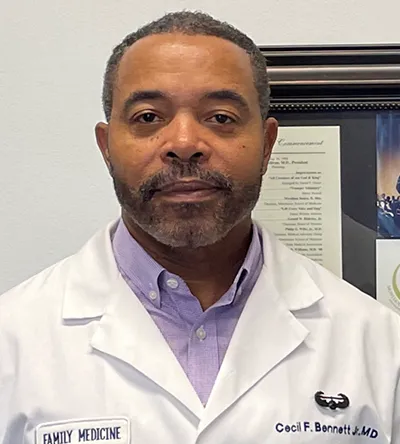A cancer diagnosis can be overwhelming, but it doesn’t have to make you helpless. Fear and uncertainty are natural, but proactive actions can allow the regain of life control. Information gathering, decision, and preparation for your therapy in the first days and weeks following your diagnosis are essential and critical.
With information and proper guidance, it’s easy to confront the journey with determination and fortitude. Here are eight essential actions following a cancer diagnosis, with actionable tips for prioritizing your well-being and overall life quality.
1. Take Time to Understand the News
A cancer diagnosis can be startling and emotional. Having various feelings, including uncertainty, anger, and fear, is not unusual. Give yourself a processing period, and don’t make any rapid choices. Working through your fears and concerns becomes easy with support from friends, family, and therapists. Venting your feelings and getting them addressed early can spare long-term anguish.
Ask for comprehensive details regarding the medical findings, from the stage and the type of cancer to treatment options and prognosis. Information derived through sound sources, such as groups concerned with cancer, will allow you to make sound medical decisions regarding your care and treatment. The more information you have, the more realistic your expectations will be.
2. Build a Strong Support Group
Family members, friends, and support groups can practically and emotionally assist you. Let your family and friends understand how they can best serve you, such as by accompanying you to appointments, supporting your daily routine, or listening to you. Receiving assistance from them can help ease your tension and overall state of being.
Make yourself also part of relevant local or online support groups. Sharing with fellow individuals who have experienced a similar diagnosis can comfort and help gain a new outlook. Most hospitals and cancer groups have free support groups in which you can exchange experiences and gain encouragement from individuals with similar experiences and obstacles to overcome. This brings about a feeling of belonging, giving you the daily motivation you need to fight on.
3. Seek a Second Opinion on Your Cancer Diagnosis
A second opinion can make your care plan transparent and confidence-inspiring. Varying techniques can occur with alternative oncologists, and visiting a specialist can enable consideration of all avenues of options. Most insurance providers cover a second opinion, and your physician will have no issue issuing a referral. Various viewpoints can ensure that you receive your best and most updated care.
Seeking another doctor’s consultation is especially worth your time if your diagnosis is complex or not routine. There are medical centers for specific types of cancer, and these can give you additional options for care, including access to clinical trials not generally available at most medical centers. Seeking out these options can increase your chance of finding a more personalized and successful care plan.
4. Explore Compensation for Exposure at Work
If your cancer diagnosis reveals that the cancer is work-related, such as being exposed to asbestos, consider following the necessary legal procedures. Individuals with a medical diagnosis of mesothelioma and lung cancer developed through contact with asbestos can make lung cancer claims for financial compensation. Asbestos exposure has been a cause of lung disease for many years, with many victims having received compensation for medical and loss of earnings.
Consulting a disease expert in occupations can validate your claim. They can ensure that your entitled compensation is received by navigating through the legal process. Doing so can alleviate financial burdens and enable funding for care and therapy in addition to those received. Involved lawyers who specialize and are experienced in handling similar cases for the best assistance.
5. Understand Your Treatment Options
Based on what your cancer diagnosis brings to light, each cancer and stage will have a specific type of treatment. Chemotherapy, radiation, surgery, target therapies, and sometimes immunotherapy are standards. What your doctor will prescribe for your case will depend, but learn about each one’s risks, benefits, and possible side effects.
Some treatments will profoundly affect your life, and having information about them in advance will best allow you to prepare for them. Ask your doctor about any impact, healing times, and alternatives to make an educated decision about your case.
6. Take Care of Your Finances
A cancer diagnosis can have unanticipated medical costs, and planning is therefore critical. Verify your medical cover to understand the drugs and therapies included in your cover. Talk to a financial advisor or a social worker at a medical institution to explore programs and funding sources that can pay for your expenses. Planning can make financial burdens easier and allow you to prioritize healing and health.
If you work, contact your employer about medical leave and short-term disability pay. Employers with financial aid and non-profit organizations can make payments for expenses such as medical care and medication. Having your financial options in mind early can spare you from unnecessary hardships.
7. Make Lifestyle Adjustments for Your Well-Being
A healthy life can improve your overall well-being and disease care. Mind what goes on your plate, value workouts, and get enough rest. You want to create the best condition for your body and mind to rejuvenate, supporting the healing journey. With time, have a way of monitoring your progress and initiating the appropriate changes.
Your doctor or a nutritionist can educate you about foods that are most beneficial for you. Moderate, regular exercise, such as a simple walk, can boost your energy level and alleviate your symptoms of exhaustion during and after your therapy. Consider relaxation techniques, such as nature walks and guided imagery.
8. Prioritize Your Mental Health
Cancer affects not only your body but also your mind. There can be uncertainty, depression, and anxiety. Meeting with a trained therapist or a counselor can calm your feelings and allow you to build effective coping techniques. Handling mental health is no less important than managing symptoms in your body.
Practices like journaling, being present, and creative activity can make a big difference. Staying social and having a positive outlook can help in your coping with the emotional aftermath of a cancer diagnosis. Having a strong circle of supportive friends and family can work to stabilize and energize you during times of difficulty.
Conclusion
While a cancer diagnosis can be daunting, remember that it’s essential to have a positive attitude and an outlook about what can be addressed. Following the right path will make you more prepared, informed, and empowered to soldier on. It’s important to think of other aspects of life, such as finances, and strategize on compensation through legal assistance. With hope and determination, you can persevere, regardless of the challenges you face.








